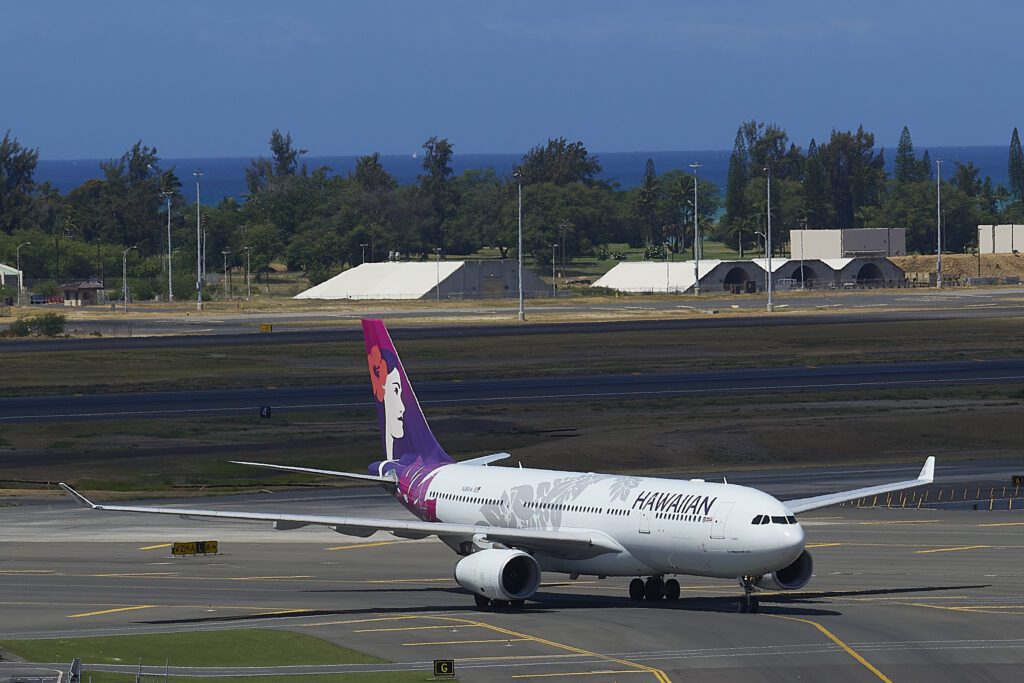The Hawaii Department of Transportation is focusing on plant-based jet fuel as a key strategy to reduce carbon emissions in aviation, following a settlement with a group of teenagers who sued the state for climate action. These teens opposed plans to use biojet fuel, arguing it isn’t entirely carbon-free and has negative environmental effects, advocating instead for a focus on electric planes.
Hawaiian Airlines has invested in Regent Craft’s all-electric Sea Glider, but aviation officials note that small electric planes can’t meet the demand for interisland travel, which is responsible for over 50% of transportation emissions in Hawaii.
The finalized plan acknowledges the challenges of achieving “absolute zero emissions” by 2045, particularly in commercial aviation, large cargo ships, and trucks. While the goal remains, interim solutions, including sustainable aviation fuel (SAF) that emits 50% to 80% less carbon than conventional jet fuel, are prioritized. The plan also includes support for infrastructure changes and tax credits for SAF production in Hawaii. However, plans for electric and hydrogen aircraft are currently limited to research.
Source link


